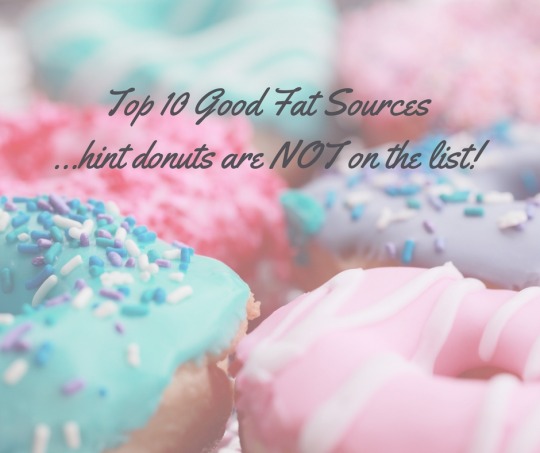Everything You Need to Know About Eating Fat

Or Are you Eating the Right Fat?
Or Worried you’ll Gain Weight from Eating Fat?
Or Are You Feeding Your Brain Enough Fat?
If you believe that eating fats and oils are a “no-no”, you might be in for a surprise. Fat is a vital component of a balanced diet and is required for the body to function properly. But eating TOO much fat or the WRONG kinds of fats can be a big problem. With all the information out there on what to eat and how to eat, it’s important to sort through the various fads, diets, and tips and understand what your body actually needs.
Given how many nutrition gurus purport the benefits of their protocols and eating lifestyles while dismissing the science of others, it can be tricky to figure out which combinations of foods are best for our own needs. In fact, it can feel like there’s always a new discovery about the best way to eat making us question if we’re ever ‘doing it right’!
Lately it’s all about Paleo and Keto diets, turning prevailing knowledge on its head, largely because of their emphasis on eating significant quantities of healthy fats.
No matter what eating lifestyle you follow, newer science is showing us that there are more benefits to eating higher quantities of healthy fats than we previously thought. In fact, research is showing that the body is built to use fats as a major source of energy - some evidence even suggests that fat is a better energy source than carbohydrates! It’s a fact that fat is also important to a wide variety of healthy functions in the body.
Good fats and what they do:
● Help build strong cell membranes for individual cells as well as the sheaths surrounding nerves
● Assist in blood clotting, in muscle movement, and in controlling inflammation
● Are essential for absorbing certain vitamins and minerals such as vitamins A, D, E, and K, and calcium, chromium, iron, magnesium, and zinc among others.
● Can promote weight-loss
● Help encourage blood sugar stability
● Are a key factor in achieving hormonal balance
● Play a critical role in brain function, memory, and attention span
● Have a direct impact on the quality of hair, skin, and nail growth
These reasons should be enough for all of us to realize how important it is to include fats in our nutrition plans!
But I thought fats were bad?
For a long time that was a common way of thinking. The reality is that the reason fats have been stigmatized was because our understanding of how different fats work was still developing - and because we’d been eating too much of the wrong ones!
We understand now that not all fat sources are created equal - just like not all vegetables are equal (just compare iceberg lettuce with it’s dark, leafy counterparts, romaine and spinach). There are different kinds of fats and to make understanding them easier, I like to think of fats as being on a continuum. On one end of the continuum are good fats like monounsaturated and polyunsaturated fats and on the other end are bad fats like industrial-made trans fats in processed foods. Saturated fats fall somewhere in the middle.
So which fats should you be eating?
Choosing mostly monounsaturated and polyunsaturated fats most, followed by a moderate amount of naturally present saturated fats in foods is your best strategy. Bad fats should obviously be avoided - which will probably be easier than you think because they’re mostly present in treats and junk foods that you wouldn’t want to rely on anyway!
Recent studies on Coconut Oil have found it to be useful in the reduction of body fat in the belly as well as helping to reduce Body Mass index (BMI). Just like any other nutrient, consuming a variety of fat sources is key to finding balance in your nutrition. Not only because variety is important in any diet, but because different foods are more than just a kind of fat, they offer different beneficial vitamins, minerals, and fibre too!
10 Source of Healthy Dietary Fat
1. Avocado
2. Cheese
3. Dark Chocolate
4. Whole Eggs
5. Fatty Fish
6. Raw nuts and seeds
7. Chia Seeds
8. Extra Virgin Olive Oil
9. Coconut & Coconut Oil
10. Full Fat Yogurt
I recommend adding fats into your diet slowly, especially if you’ve been avoiding them until now. Digesting anything well requires that the body has certain underlying requirements met including healthy gut flora and enzyme production. This is true in the case of fats as well. I’ve talked about gut flora at length, but enzymes (like lipase, the enzyme that helps break down and digest fats) are also a vital part of healthy digestion - and are the subject for another time. Also, I may not recommend dairy for everyone, and direct my patients to healthy animal fats and proteins.
Are you eating right for your mind, hormone production, your metabolism? Get out of the “fat free” cycle and into a healthier diet that includes good fats. Allow me to assess your body’s nutrient needs to help you experience optimal health every day through nutrition that’s ideal for you. Call me at 416-919-1914.
Dr. Amita Sachdev ND
Naturopathic Doctor
References:
https://www.health.harvard.edu/staying-healthy/the-truth-about-fats-bad-and-good